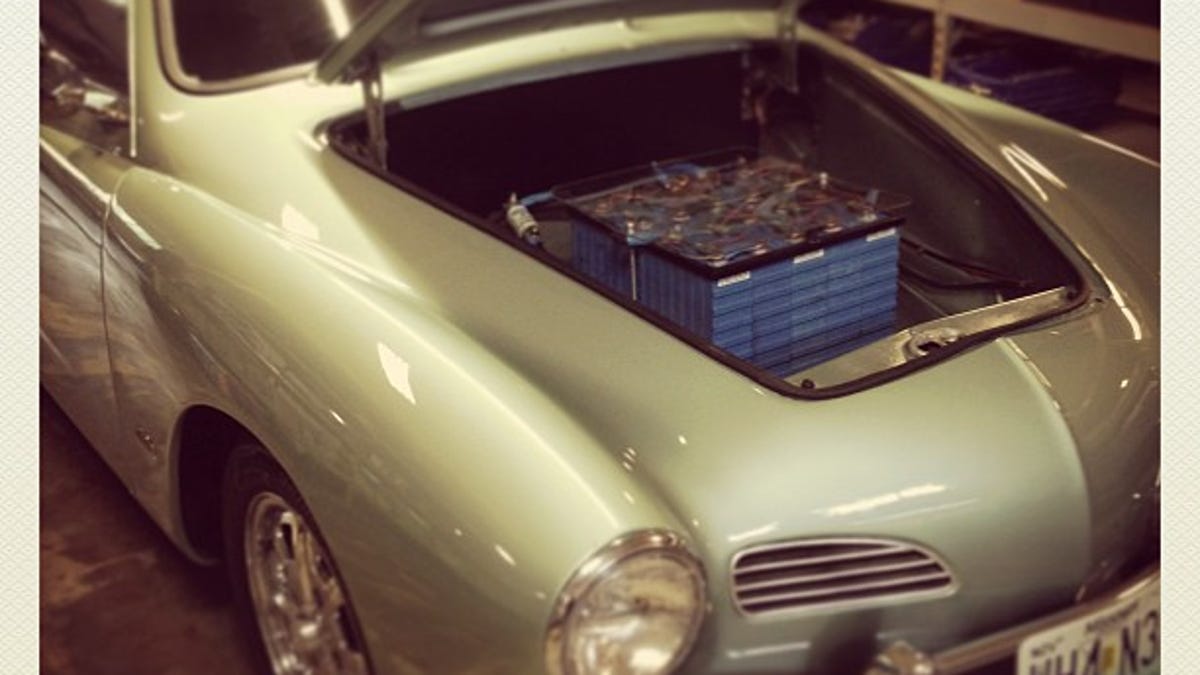Electric 1967 Karmann Ghia runs on social-media fuel
Students in a Kansas City after-school program build an electric car that needs tweets, Facebook likes, and Instagram photos to run.

Back when a certain 1967 Karmann Ghia rolled off the assembly line, nobody could have expected that one day it would be gutted, filled with batteries, and turned into an electric car that runs thanks to social-media feedback. The car is part of the Minddrive after-school program, a Kansas City (both Missouri and Kansas) organization dedicated to working with at-risk students.
For Minddrive's latest automotive design project, students chose to refurbish an old Karmann Ghia, turning it into an electric car. The car will be driven from Missouri to Washington D.C. starting on May 31, but it will take a lot of help to get it there. The car is designed to run only if there is enough social-media support to keep it going.
A device in the car logs the number of Minddrive tweets, shares, video plays, and Facebook mentions the group gets. Those numbers are used to determine how much "fuel" the electric batteries have. With no social-media feedback at all, the car wouldn't run an inch. However, the social-media campaign is well under way. You can follow the current tallies at Minddrive's site.
Each Twitter follow is worth 5 watts. Each Facebook like is worth 1 watt. Each petition signature to support learning organizations like Minddrive is worth a whopping 10 watts.
The Karmann Ghia can go about 30 miles on a charge and has a top speed of 45 mph. It will take about a week to reach its road trip destination.
Besides converting the original Karmann Ghia, the students are also working on creating copies with sustainable wood structures and fiberglass bodies. These cars are designed to be produced at the rate of one per month and sold as kits to the public, with the funds going to continued support of Minddrive. These models won't have the social-media requirement, so you won't have to be Internet-famous to run them.

